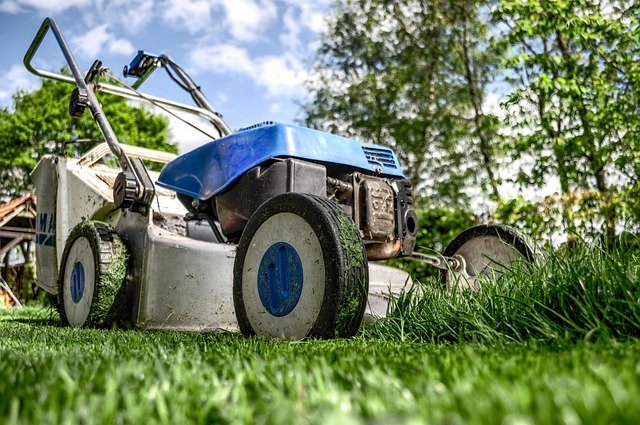Local Regulations and Compliance for Home Fuel Storage
Storing home fuel safely requires understanding local regulations, practical safety measures, and routine maintenance. This overview highlights the common legal and technical requirements for residential fuel tanks, what to check before delivery, and how insulation, blending, and emissions rules influence safe, compliant storage.

Home fuel storage for heating or backup power combines legal obligations, practical safety and environmental considerations. Regulations vary by jurisdiction, but common themes include tank siting, secondary containment, leak detection, and permit requirements. Homeowners and property managers should know how local building codes, environmental protection rules, and fuel supplier requirements intersect with fuel quality, delivery practices, and maintenance to reduce risk, control emissions, and ensure systems like boilers run efficiently.
What storage regulations apply to home fuel storage?
Regulations typically cover tank type (aboveground vs underground), maximum permitted volume, distance from property lines and buildings, and whether a permit or inspection is required. Many municipalities require aboveground tanks to be placed on a stable, non-combustible base and at specified clearances from windows, doors, and property boundaries. Underground tanks often face stricter environmental controls, including registration, regular leak testing and financial responsibility requirements. Always consult your local building authority and environmental agency to confirm exact siting and permitting rules in your area.
How does fuel quality, biodiesel and blending affect boilers?
Fuel quality influences combustion efficiency and maintenance frequency. Biodiesel blends (for example B5 or B20) can reduce certain emissions but may affect storage stability, gumming, and water absorption compared with conventional fuel. Blending requirements or allowances are sometimes regulated to meet emissions or sustainability targets, and suppliers may label blends differently. Boiler manufacturers often specify acceptable fuel types and maximum blend percentages; using nonapproved blends can void warranties and increase maintenance. Store and rotate fuel to preserve quality, and follow supplier guidance on blending and handling.
What safety measures and emissions rules should homeowners follow?
Safety regulations focus on preventing leaks, fires and soil or groundwater contamination. Common requirements include secondary containment (drip trays or bunds), overfill protection, spill response planning, and clear access for emergency responders. Emissions-related rules may require low-sulfur fuels or specific blending practices to meet air quality standards in some regions. Regular inspections, corrosion protection for tanks, and immediate remediation of any spills are often mandated. Maintain clear records of inspections, deliveries and maintenance to demonstrate compliance in case of an audit or sale.
How can efficiency, insulation and thermostat settings reduce consumption?
Reducing fuel consumption lessens delivery frequency, lowers cost and cuts emissions. Improving insulation around the property and pipework, sealing drafts, and optimizing boiler controls all contribute to efficiency. Modern thermostats, zoning, and regular boiler tuning improve combustion efficiency and reduce unnecessary runtime. Efficient fuel use also affects storage planning: smaller tanks or more frequent smaller deliveries may suit efficient homes, while older, less efficient systems might require larger bulk storage. Consider energy audits to identify insulation and system upgrades that yield the biggest consumption reductions.
Delivery, bulk purchases and cost considerations
Delivery scheduling, bulk-buy agreements and supplier contracts are subject to both commercial terms and regulatory constraints. Local suppliers will have requirements for access, safe delivery distances, and sometimes for tank certification before filling. Bulk purchases can reduce per-unit cost but often require compliant tank capacity and approved siting. Prebuy contracts can lock in a price but may expose homeowners to market risk. Compare delivery minimums, emergency delivery policies and whether a supplier offers compliant handling of biodiesel or blended fuels.
| Product/Service | Provider | Cost Estimation |
|---|---|---|
| Conventional heating oil (residential delivery) | Major national suppliers (where available) such as Shell or BP, and regional dealers | US: approximately $2.50–$4.50 per gallon; UK: approximately £0.90–£1.40 per litre (estimates vary by market and season) |
| Biodiesel/blended fuel (B5–B20) | Regional biodiesel suppliers, fuel cooperatives, and some national dealers | Typically a small premium to conventional oil; roughly 5–20% higher per energy-equivalent unit depending on blend and local supply |
| Bulk delivery contract (seasonal or prebuy) | Local independent fuel dealers and cooperatives | Bulk discounts commonly reduce unit cost by around 5–15% versus single deliveries; exact savings depend on contract volume and market conditions |
Prices, rates, or cost estimates mentioned in this article are based on the latest available information but may change over time. Independent research is advised before making financial decisions.
Maintenance, inspection and legal recordkeeping
Regular maintenance keeps systems compliant and efficient. Typical tasks include annual tank and line inspections, filter changes, burner tuning, and water removal from fuel where applicable. Keep written records of deliveries, inspections, repairs and permits—these documents are often required during property transactions or regulatory inspections. Promptly address any signs of corrosion, leaks or system inefficiency and engage certified technicians for major repairs or tank replacement.
Local regulation and compliance for home fuel storage is a mix of safety engineering, environmental protection and practical maintenance. Staying informed about siting and permit rules, following fuel and blending guidance, scheduling routine maintenance, and planning deliveries to match consumption will reduce risk, control emissions and help systems like boilers operate reliably. Manufacturers’ instructions and local authorities are the primary references for specific obligations and acceptable fuel types.





